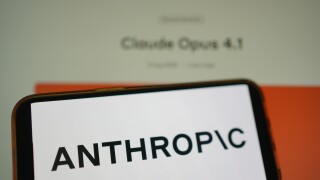Firm
Brian Horne reveals how his team secured a favourable damages outcome in a patent and trade secrets case involving X-ray technology
The five-partner team enhances Sheppard Mullin’s technology and life sciences capabilities, expanding its IP practice to more than 130 practitioners
Benjamin Grzimek, partner at Casalonga’s new Düsseldorf office, believes the firm is well-placed to challenge German UPC dominance
A lot of the reporting around the Anthropic settlement misses something critical: it isn’t that relevant to AI training, argues Rebecca Newman at Addleshaw Goddard
Sponsored
Sponsored
-
Sponsored by Hanol IP & LawRecently, the Korean Supreme Court rendered a new en banc decision finding that a final and conclusive decision granting a patent correction cannot constitute a ground for retrial.
-
Sponsored by Tilleke & GibbinsThe concept of corporate criminal liability was introduced into Vietnamese law under the Penal Code of 2015, which took effect in 2018. Under the 2015 Penal Code, for the first time, corporate entities (companies) could be held criminally liable for a variety of offences, including certain intellectual property crimes under Articles 225 and 226.
-
Sponsored by AnJie Law FirmIn the US-China Phase One trade deal signed on January 15 2020, notable agreements on patents mostly relate to pharmaceutical sectors – Articles 1.10, 1.11 and 1.12. It is possible that these articles may also have implications for other sectors, which remains to be seen in the subsequent implementation. In addition, the provisions on judicial enforcement and procedures should benefit all patent owners. More technical issues such as indirect infringement or changes to the judicial review of invalidation decisions are not addressed. This update provides a brief overview of these key changes.
-
Sponsored by ABE & PartnersJapan has suffered from trade secret theft by Korean companies who enticed Japanese employees. It significantly damaged national interest. Nippon Steel & Sumitomo Metal Corp. (now Nippon Steel) sued Posco for trade secret infringement and sought around 100 billion JPY in damages. Posco agreed to pay 30 billion JPY and the parties settled. Toshiba sued SK Hynix for trade secret infringement and sought around 110 billion JPY in damages. SK Hynix agreed to pay around 33 billion JPY and the parties settled.
-
Sponsored by Basham Ringe y CorreaEduardo Kleinberg and Santiago Zubikarai of Basham evaluate the new industrial property legislation under consideration in Mexico, assessing changes to the law on damages, fines, the registration of trademarks and patents
-
Sponsored by AnJie Law FirmOn December 25 2019, the Supreme Court promulgated amendments of Several Provisions on Civil Evidence Rules (amendments). The amendments, which will come into effect on May 1 2020, have attracted lots of attention from IP practitioners. The rules are expected to improve the accuracy and standardisation of evidence production procedures and balance the burden of proof between litigants. Below are some highlights of the amendments.





















